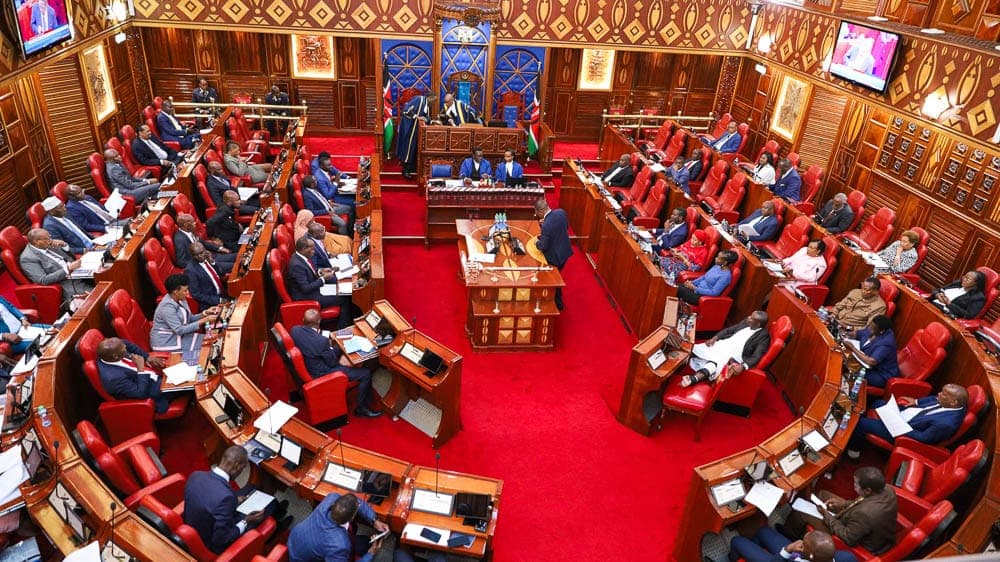We're loading the full news article for you. This includes the article content, images, author information, and related articles.
The Senate has launched a week-long initiative in Busia County to scrutinise cross-border trade efficiency and address numerous stalled development projects, aiming to enhance regional integration and local economic growth.

The Kenyan Senate has commenced a week-long oversight visit to Busia County, focusing on the efficiency of cross-border trade, regional integration, and the status of stalled infrastructure projects. The initiative, dubbed 'Senate Mashinani', began on Monday, October 6, 2025, with senators from the Standing Committee on National Cohesion, Equal Opportunity and Regional Integration engaging with officials at the Malaba and Busia One Stop Border Posts (OSBPs).
Meetings were held with representatives from the Kenya Revenue Authority (KRA) and the Immigration Department to assess progress in trade facilitation and integration measures under the East African Community (EAC) framework. The Senate's visit aims to foster stronger collaboration between Kenyan and Ugandan border agencies and tackle persistent challenges hindering the smooth flow of goods and people.
Busia County, strategically located at the border with Uganda, serves as a critical gateway for trade within the EAC. However, the region has long grappled with issues such as inefficient border operations, corruption, and a multitude of stalled development projects. These challenges have hampered economic growth and negatively impacted the livelihoods of residents.
The Senate's role, as outlined in Article 96 of the Constitution of Kenya 2010, includes representing counties, protecting their interests, participating in law-making concerning counties, determining national revenue allocation among counties, and exercising oversight over national revenue allocated to county governments. This oversight visit aligns with the Senate's mandate to ensure devolution is entrenched and that county governments are accountable for public funds and development initiatives.
The Senate's oversight function is enshrined in the Constitution, particularly concerning national revenue allocated to county governments. The County Oversight and Accountability Bill, 2024, further empowers individual senators to exercise oversight over their respective counties, establish oversight offices, and facilitate public participation in budget processes. This legal framework provides the basis for the current scrutiny of Busia's development and resource management.
The continued stalling of projects in Busia County poses significant risks, including economic stagnation, loss of potential revenue, and erosion of public trust in government institutions. Inefficient border operations can hinder regional trade, increase costs for businesses, and create opportunities for illicit activities. The Senate's intervention, while crucial, must be followed by concrete actions and accountability to ensure these issues are resolved. Failure to address these challenges could further marginalise the border county and impede Kenya's broader regional integration agenda.
The specific timelines for the completion of stalled projects and the implementation of proposed solutions for border efficiency remain unclear. The financial implications of reviving these projects and the mechanisms for ensuring accountability for past delays are also yet to be fully detailed.
Key areas to monitor include the specific recommendations made by the Senate committee following their engagements, any commitments from the Busia County Government and national agencies to address the identified issues, and the establishment of clear timelines for project completion and border operational improvements. The response from stakeholders regarding the Senate's findings and proposed solutions will also be critical.
Similar Senate oversight initiatives have been conducted in other counties, addressing stalled projects and financial accountability. For instance, the Senate's Public Accounts Committee recently raised concerns over stalled projects in Uasin Gishu County totalling over KSh 5 billion. The Interior Cabinet Secretary has also previously vowed to streamline border operations at Busia and Malaba to combat corruption.
Keep the conversation in one place—threads here stay linked to the story and in the forums.
Sign in to start a discussion
Start a conversation about this story and keep it linked here.
Other hot threads
E-sports and Gaming Community in Kenya
Active 9 months ago
The Role of Technology in Modern Agriculture (AgriTech)
Active 9 months ago
Popular Recreational Activities Across Counties
Active 9 months ago
Investing in Youth Sports Development Programs
Active 9 months ago